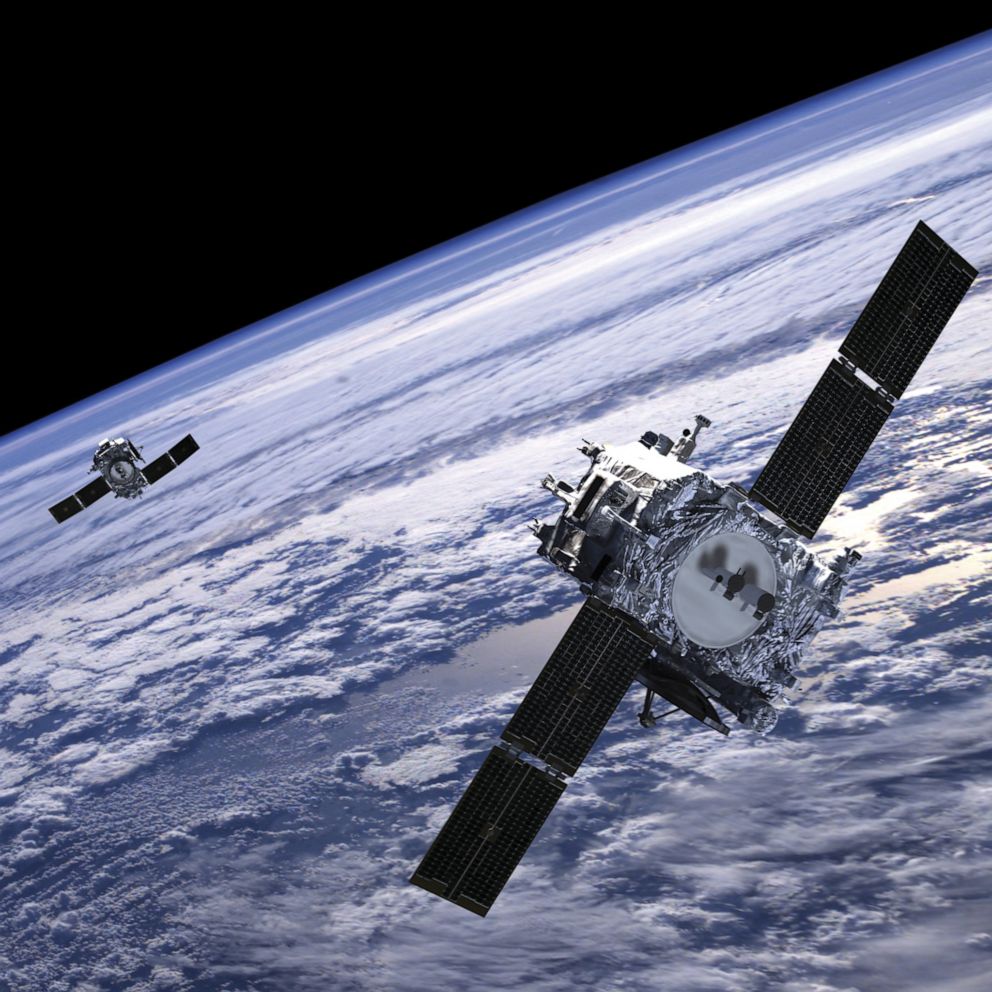Pentagon calls out Russia for testing anti-satellite weapon
During the test, a Russian satellite ejected a projectile into space.
U.S. Space Command has accused Russia of testing an anti-satellite weapon in space last week, when an orbiting Russian military satellite released an object that headed in the direction of another Russian satellite.
This marks the second time in three years that Russia has tested new technologies that could lead to so-called "killer satellites."
"U.S. Space Command has evidence that Russia conducted a non-destructive test of a space-based anti-satellite weapon," according to a statement issued Thursday. "On 15 July, Russia injected a new object into orbit from Cosmos 2543, currently Satellite Catalog Number 45915 in www.space-track.org."
In a separate statement, Air Vice-Marshal Harvey Smyth, the head of the UK's space directorate, said, "We are concerned by the manner in which Russia tested one of its satellites by launching a projectile with the characteristics of a weapon."
"Actions of this kind threaten the peaceful use of space and risk causing debris that could pose a threat to satellites and the space systems on which the world depends," said Smyth. "We call on Russia to avoid any further such testing."
Last week's test was similar to one carried out in 2017, when a Russian satellite "ejected" or "birthed" a smaller sub-satellite that Russia have labeled inspector satellites because they can approach other satellites to "inspect" for damage.

But the 2017 test created major concerns among U.S. officials because of what happened next. The Russian inspector satellite moved close to a U.S. government satellite and, after shadowing it for quite some time, it fired a fast-moving projectile that traveled into space.
That test raised concerns that Russia had developed the weapons technology for a "killer satellite" that could target satellites belonging to the United States or its partners.
Last week's test was almost an exact duplicate of the 2017 incident, except that the sub-satellite had been shadowing another Russian military satellite before it fired a projectile.
"The Russian satellite system used to conduct this on-orbit weapons test is the same satellite system that we raised concerns about earlier this year, when Russia maneuvered near a U.S. government satellite," said Gen. John W. "Jay" Raymond, the commander of U.S. Space Command and the chief of space operations for the Space Force.
"This is further evidence of Russia's continuing efforts to develop and test space-based systems, and -- consistent with the Kremlin's published military doctrine -- to employ weapons that hold U.S. and allied space assets at risk," he said on Thursday.
Meanwhile Russia's Defense Ministry said in a statement last week that the test merely involved an inspector satellite approaching another Russian satellite.
Raymond has not been shy in criticizing Russia's new space-weapon capabilities.
In February, Raymond first disclosed in a Space News interview that Russian satellite Cosmos-2542, launched in November, had ejected a sub-satellite, Cosmos-2543, the same satellite involved in last week's test.
He said both satellites had been "actively maneuvering" near a U.S. government satellite that space watchers identified as USA-245, an advanced American spy satellite.
In April, Raymond provided more details of that encounter saying the maneuvers the two Russian satellites carried out while shadowing the American satellite "would be interpreted as irresponsible and potentially threatening in any other domain.
Raymond's comments were included in a Space Command press release that criticized Russia for testing a direct-ascent, anti-satellite missile capable of destroying satellites in low-earth orbit.
Ironically, earlier on Thursday, during a phone call between President Donald Trump and Russian President Vladimir Putin both leaders discussed a bright spot in U.S.-Russian space cooperation, the 45th anniversary of the Apollo-Soyuz space mission.
ABC News' Kirit Radia contributed to this report.




